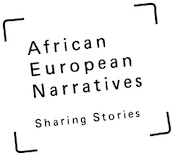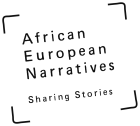Glossary : Sharing Knowledge (Event Description)
Afro-European Cartography of Culture, Language and Arts
The Afro-European Cartography of Culture, Language and Arts is an open-access editorial initiative of the Project Afro-European Narratives. Its goal is to contribute to the mapping of the Afro-European experience and to provide greater access to the scholarly discussion on post-coloniality, as a relevant dimension of a knowledge citizenship.
This cartography will evolve as progressive Glossary, a multidisciplinary compilation of terms and descriptions through collaborative access. Participants can either add new terms and descriptions or write new articles for existing entries. Such openness will not preclude the careful selection of terms and a methodological approach to the whole, that will be ensured by a Scientific and an Editorial Board and peer-reviewing of submitted articles.
As a starting point, this Afro-European Cartography invites contributions to five main domains:
Epistemologies
This section will gather and evaluate the theoretical-critical vocabulary that orients the investigation of colonial and postcolonial contexts and, in particular, the socio-cultural phenomena arising from them. This approach will draw on multidisciplinar research in the fields pf anthropology, sociology, cultural studies, postcolonial studies, narratology, visual studies, among others.History and Genealogy
This section will explore the historical phenomena that make up the Afro-European relationship, from colonies, and colonial wars to anti-colonial struggles and decolonization. The aim is to reference these phenomena and events through a multiplicity of both European and African historiographical discourses.Cultural Practices and Performativity
This section addresses the cultural practices and the new the forms of active citizenship rooted in communities situated within the Afro-European intercultural dialogue.Linguistic uses
The aim, in this section is the indexation of specific vocabulary derived from intercultural migrations between African and European languages. It will set up a cartography of loans, linguistic contaminations in both directions, from European languages to African languages and vice versa.Arts Literature and Imaginaries
This section deals with the colonial and postcolonial imaginaries and with the creative practices that reflect or deconstruct them (within and outside the institution of art) in the fields of literature, film, visual arts, installation and architecture, theatre and performance, music and dance.
- Source: africaneuropeanarratives.eu
Scientific Board
Achille Mbembe (University of Johannesburg, AZ)
Alain Kiyindou (Université Bordeaux-Montaigne, FR)
Alexandra Magnólia Dias (NOVA University, PT)
Ana Maria Martinho (NOVA University, PT)
Ana Paula Tavares (University of Lisbon, PT)
Ângela Ferreira (Faculty of Beaux-Arts, Univ. of Lisbon, PT)
António Tomaz (University of Johannesburg, AZ)
António Sousa Ribeiro (University of Coimbra, PT)
Boaventura Sousa Santos (University of Coimbra, PT)
Bonaventure Soh Bejeng Ndikung (Savvy Contemporary, PT)
Elisio Macamo (University of Basel, CH)
Fernando Rosas (NOVA University, PT)
Iolanda Évora (ISEG - Center of Studies on Africa and Development, PT)
Inocência Mata (University of Lisbon, PT)
Manuela Ribeiro Sanches (University of Lisbon, PT)
Margarida Calafate Ribeiro (University of Coimbra, PT)
Maria Paula Meneses (University of Coimbra, PT)
Miguel Cardina (University of Coimbra, PT)
Moisés Lemos Martins (Minho University, PT)
Paul Goodwin (University of the Arts, London, UK)
Paulo Inglês (University of Beyreuth and Polytechnic Institute Jean Piaget, AO)
Pedro Aires de Oliveira (NOVA University, PT)
Ricardo Roque (University of Lisbon, PT)
Ricardo Soares de Oliveira (Oxford University, UK)
Rute Costa (NOVA University of Lisbon, PT)
Editorial Board - Subject Editors
Epistemologies
Margarida Calafate Ribeiro (University of Coimbra – CES)
Elisio Macamo (University of Basel)
History and Genealogy
Pedro Aires de Oliveira (NOVA University - IHC)
Ricardo Soares de Oliveira (Oxford University - St Peter’s College)
Cultural Practices and Performativies
Alain Kiyindou (University of Bordeaux-Montaigne – UNESCO Chair)
Cláudia Madeira (NOVA University of Lisbon – ICNOVA)
Linguistic Uses
Maria Augusta Babo (NOVA University of Lisbon – ICNOVA)
Rute Costa (NOVA University of Lisbon - CLUNL)
Arts and Imaginairies
Bonaventure Ndikung (Savvy Contemporary, Berlin)
Paul Goodwin (University of the Arts, London)
Executive Board
Coordinator: Maria Augusta Babo (NOVA University of Lisbon, PT)
Cláudia Madeira (NOVA University of Lisbon, PT)
Madalena Miranda (NOVA University of Lisbon, PT)
Maria Teresa Cruz (NOVA University of Lisbon, PT)
Marta Lança (NOVA University of Lisbon, PT)


